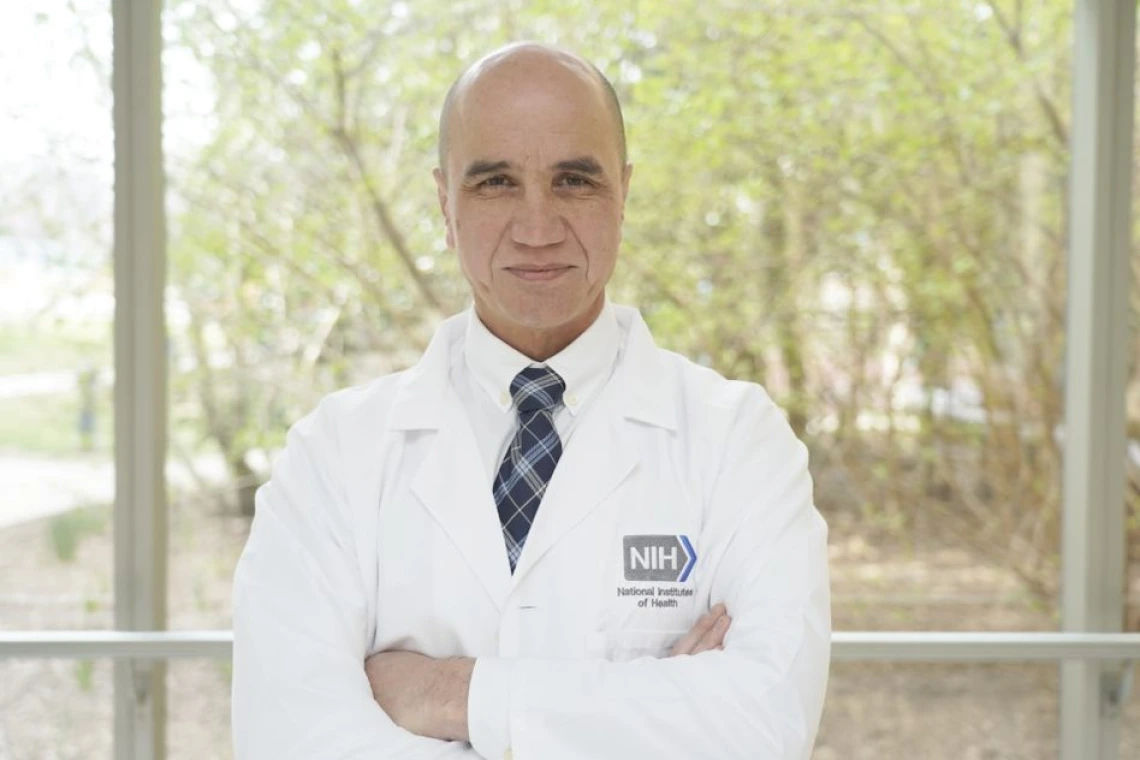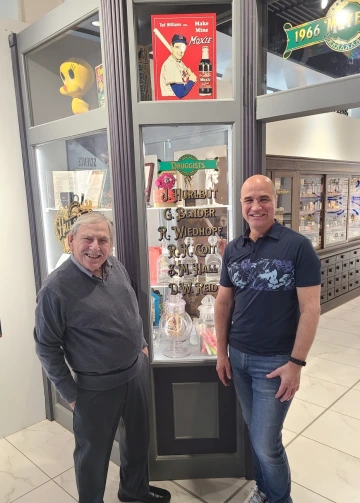Alumni Spotlight: Gerald ‘Jerry’ Overman '94

Jerry Overman, PharmD, BCPP, FAAPP wasn’t always set on the path of becoming a pharmacist. When he arrived at the University of Arizona in 1986, he knew he was interested in STEM-related fields – biology in particular – but hadn’t decided yet which degree would help him best pursue his specific, budding interest in human psychology/psychiatry, as well. When he first began to explore the world of pharmacy, a connection with someone in the field inspired him to join the college.
“I sought out the person who would become my future mentor in psychiatric pharmacy practice at the College of Pharmacy, Martie Fankhauser, before entering pharmacy school,” he remembered. Fankhauser, a retired clinical professor of Pharmacy Practice and Science with the college (and class of ’82 graduate) gave him the introduction and encouragement needed to pursue his PharmD degree – a time when he became involved with the History of Pharmacy Museum as a student worker.

Richard Wiedhopf stands with Jerry Overman in the Coit Museum of Pharmacy and Health Sciences.
His tenure with the museum began with an introduction to Richard Wiedhopf, the third curator of the museum and a class of ’65 alumnus. “I happened to have both framing and display experience from my high school and early college years,” Overman said. “We were introduced by a mutual friend and that was that.” For the next few years, he worked alongside Wiedhopf changing seasonal displays throughout the college, creating new ones, and framing archival photos – including the extensive collection of class photos on display in Drachman Hall. “I spent a lot of time in the archive room back in the day, polishing cleaning, and finding all sorts of treasures.”
As the museum – renamed the Coit Museum of Pharmacy & Health Sciences in 2021 – undergoes a revitalization effort under its new director, Heather Ingram, Overman was excited to come back to the college and tour the spaces he used to work in. In more ways than one, he connected with the museum’s history. “It was fun seeing my class picture on my tour,” he reflects, highlighting one of the favorite spaces of many alumni who return to campus and see their graduation photos. Another personal connection was in store for him at the museum as well, he noted. “It was a full circle moment – Martie Fankhauser is now a guide at the Coit Museum!”
With over three decades spent in pharmacy, Overman has maintained a commitment to excellence and outstanding achievement. After graduation, he completed three years of postdoctoral residency and fellowship training at the University of Texas Health Science Center and College of Pharmacy. He became board-certified in Psychiatric Pharmacy Practice and created a Clinical Pharmacy Specialist position in Psychiatry/Substance Abuse at the South Texas Veterans Health Care System, where he served as Residency Director, while also working as a Clinical Assistant Professor at the University of Texas. Later, he held a faculty position with the University of Illinois before joining the National Institutes of Health (NIH) in Bethesda, MD. In 2002 he became the Clinical Pharmacy Specialist for the National Institute of Mental Health (NIMH), a position he still holds today.
Overman’s areas of interest include potential pharmacological treatment strategies for the management of psychotic disorders, mood disorders, and autoimmune encephalitis brain disorders. He is a founding member of the American Association of Psychiatric Pharmacists (AAPP) and has served as a member of the American Society of Health System Pharmacists, the American College of Clinical Pharmacy, and the Phi Lambda Sigma Leadership Society. In 2025, he was accepted into the first class of Fellows of the American Association of Psychiatric Pharmacists (FAAPP).
Q & A
What inspired you to become a pharmacist?
- I have always been interested in science, and like many, had multiple declared majors before finding my niche in pharmacy, including Engineering, Biology/Botany, Atmospheric Sciences, and Ecology and Evolutionary Biology. When exploring a career in pharmacy, I was surprised to learn about all the potential career options available. During my undergraduate studies, I became quite interested in entry-level psychology classes, and the intricacies of the human brain in biology/anatomy courses. I knew early on that I wanted to specialize in psychiatry but kept my mind open during the entirety of the rigorous pharmacy curriculum to determine if other areas would also pique my interest.
What skills do you believe are essential for success as a pharmacist?
- Where do I begin? Intellectual curiosity will take you far, not to mention surviving the grueling coursework and late nights studying. Always remember why you are doing it. For me, it was to serve our patients who put their trust in us. Compassion is key. Other essentials that I have found helpful are flexibility, consistency, and stamina. Like many parents have said, get good sleep, and keep a healthy diet to make it all possible.
How did you enjoy the museum tour and what was your favorite exhibit?
- I was amazed with how the museum has grown. I have always loved the story of the ‘Dillinger’s gum’, and so many of the other classic items. However, I was blown away with the collection donated by Disney. I had not heard of it until my recent visit. The fact that my old boss, Dick Wiedhopf, and one of my past professors, Ted Tong, were two of my tour guides was a definite highlight.
What is it like to know you have contributed to the history of the college and the pharmacy collection?
- I always enjoyed my work back in the 80’s/90’s. The tour brought back some amazing memories. Being a part of that history brings me joy.
If you could give one piece of advice to current pharmacy students, what would it be?
- Work hard and utilize your free time well. Live a healthy, balanced life, but at the same time, when you have downtime at school, residency, fellowship/other training, monopolize that time. You won’t get much free time often in your future work. Trust me on that one. Learn that skill now.

